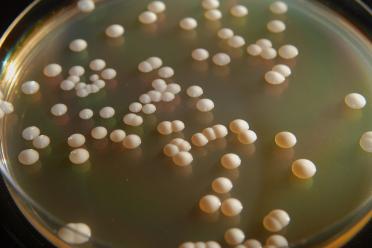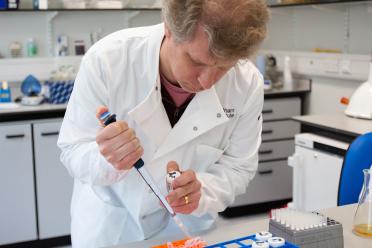
Researchers in the Manchester Institute of Biotechnology (MIB), based at The University of Manchester, and at the Earlham Institute have created the tRNA Neochromosome – a chromosome that is new to nature.
It forms part of a wider project (Sc2.0) that has now successfully synthesised all 16 native chromosomes in Saccharomyces cerevisiae, common baker’s yeast, and aims to combine them to form a fully synthetic cell.
The international team has already combined six and a half synthetic chromosomes in a functional cell. It is the first time scientists have written a eukaryotic genome from scratch.
Yeasts are a common workhorse of industrial biotechnological processes as they allow valuable chemicals to be produced more efficiently, economically, and sustainably. They are often used in the production of biofuels, pharmaceuticals, flavours and fragrances, as well as in the more well-known fermentation processes of bread-making and beer-brewing.
Being able to rewrite a yeast genome from scratch could create a strain that is stronger, works faster, is more tolerant to harsh conditions and has a higher yield.
The process also sheds light on the traditionally problematic genome fundamentals, such as how genomes are organised and evolved.
The findings of both projects, published as two research articles in the journals Cell and Cell Genomics respectively, are the culmination of 10 years of research from an international consortium of scientists and mark a new chapter in engineering biology.
The consortium is led by Professor Patrick Cai at The University of Manchester, and includes Earlham Institute Group Leader Dr Conrad Nieduszynski.
Dr Nieduszynski said: “It was a major challenge to design a neochromosome that could both express hundreds of tRNA genes and be faithfully replicated in cells.
“We’re delighted to have contributed to the design and demonstrated stable DNA replication for the tRNA neochromosome.”
